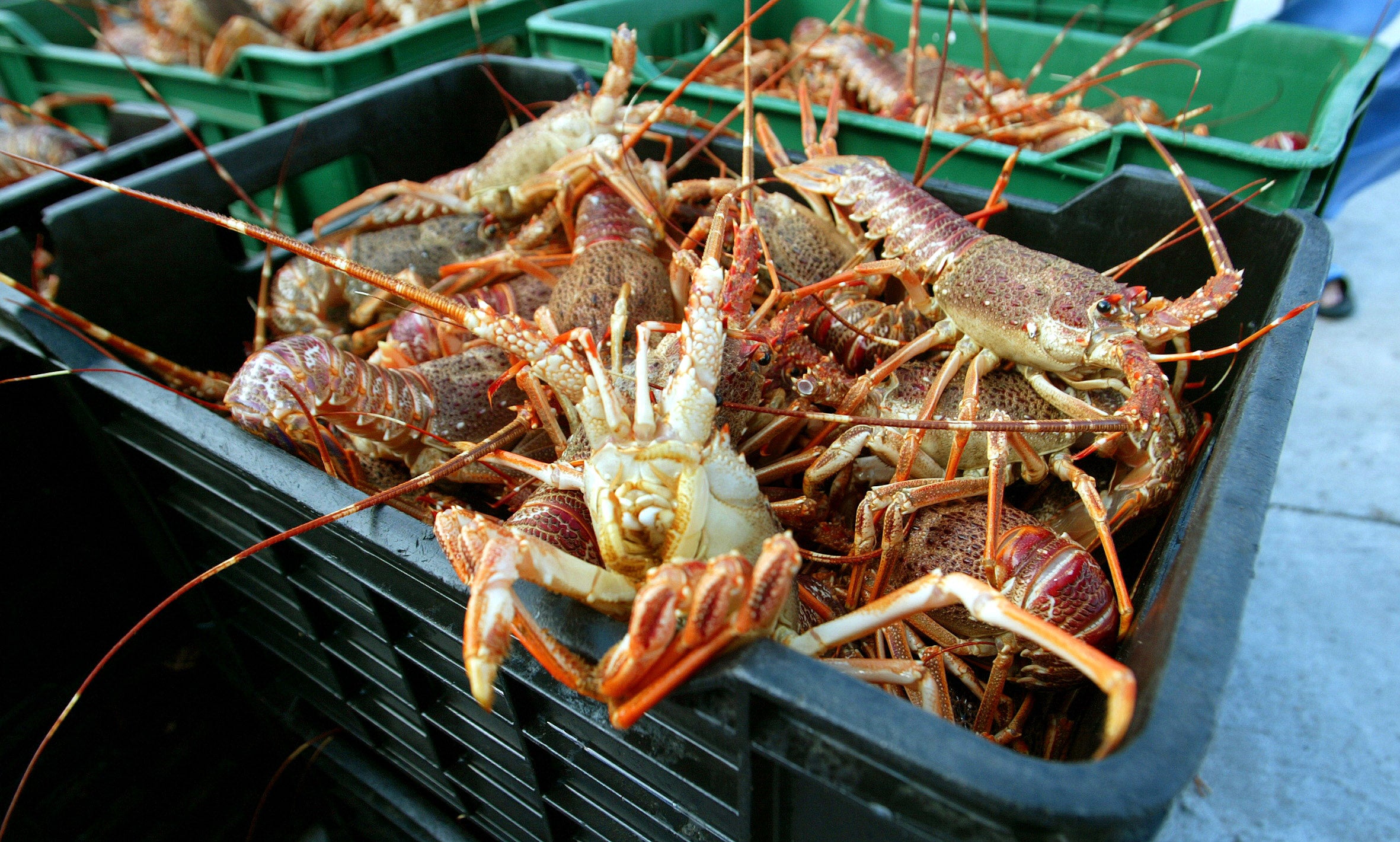Rising water temperatures turn lobsters into cannibals
Lobster cannibalism in the wild has been caught on camera for the first time as water temperatures in Maine reach a century high

Marine biologists in America have discovered that an odd combination of climate change, warming waters and overfishing have transformed the lifestyle of the lobster, turning the crustacean into a cannibal.
Noah Oppenheim, a scientist studying the marine ecosystems off the coast of Main, was the first capture lobster cannibalism in the wild on camera by setting up a camera trap using a juvenile lobster as bait.
When similar experiments were conducted in 1992 they found that fish would come in to grab the tempting snack, but instead, Oppenheim’s camera caught an adult lobster swooped in and “eviscerated” the younger animal.
Although lobsters are known to attack and eat each other in captivity (lobsters kept together in captivity have their claws secured with rubber bands to prevent this) Oppenheim recorded an unprecedented degree of cannibalism in the wild. Repeat experiments showed that juveniles were 90 per cent more likely to be eaten by fellow lobsters than any type of fish.
Oppenheim thinks that that the main reason for this is rising water temperatures, with the period between 2002 and 2012 recording an average of 50.7 degrees Fahrenheit – well above the century average of 47.6.
“As the water temperatures elevate, lobsters both become more fecund,” said Oppenehim, speaking to James West of Climate Desk “They reproduce more frequently and with larger broods and they grow more rapidly. If we enjoy eating lobsters perhaps other lobsters enjoy eating lobsters too.”
Other factors are also in play, with overfishing killing off the lobster’s natural predators and herring bait used in lobster traps being stolen by younger members of the species too small to be caught.
Unfortunately for local fisherman the overabundance of lobsters is hurting their job prospects by driving down the price. 2012 saw the industry record their biggest year for lobster fishing (126 million pounds caught) just as the price to sank to $2.72 per pound– the lowest since the Great Depression.
Subscribe to Independent Premium to bookmark this article
Want to bookmark your favourite articles and stories to read or reference later? Start your Independent Premium subscription today.

Join our commenting forum
Join thought-provoking conversations, follow other Independent readers and see their replies